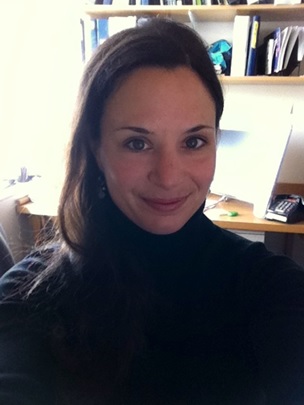Kathi Jo Jankowski

A life of research provides ample opportunity to explore, and has given me a diverse background both academically and geographically. I have a BS in Environmental Science & Anthropology from the University of Notre Dame, an MS in Biology from Loyola University Chicago, a PhD in Aquatic and Fishery Sciences from the University of Washington, and did postdoc at the Marine Biological Laboratory in Woods Hole, MA.
I am currently a Research Ecologist with the US Geological Survey in La Crosse, WI. I serve as the Principal Investigator for the Water Quality Component of the Upper Mississippi River Restoration Program, where I coordinate water quality monitoring and research on the Upper Mississippi River System in coordination with several federal and state agencies. My position is a great blend of applied work and research, and allows me to provide input on management decisions. My current research broadly focuses on understanding how land use, climate change, and restoration actions impact ecosystem processes in the Upper Mississippi and other large rivers. Specifically, I am interested in how altered terrestrial-aquatic linkages and thermal regimes influence nutrient and carbon cycling and ecosystem metabolism.
I started coming to SFS meetings in 2005, and it has been an important and consistent part of my development as a freshwater scientist since the beginning. I am excited by the opportunity to participate in the society in a new way through this position
What do you think are the current and emerging challenges facing the Society for Freshwater Science?
The challenges facing the Society for Freshwater Science mirror those faced by freshwater systems and their advocates globally. As a society, we are challenged to protect the “biodiversity” of our membership through encouraging and facilitating diverse participation in SFS, maintain “connectivity” internationally and among sectors (e.g., academic, government, industry, non-profits), and adapt to the acceleration of climate-related threats to freshwater ecosystems. SFS scientists have contributed significantly towards the progress we’ve made in better understanding, managing and protecting freshwater systems through providing critical scientific knowledge and developing more advanced tools to understand and evaluate ecosystems. However, challenges remain in advocating for and communicating these advancements effectively and creatively with citizens, policy makers and practitioners that protect this progress. This year’s theme - Translational ecology - aptly captures the direction we must go towards solving the particularly thorny problems that we now face as freshwater scientists. I have a diverse background in outreach, academic science and government that gives me experience in bridging perspectives and providing links between basic and applied sciences. In my current role as a Research Ecologist with the US Geological Survey, I have increasingly learned the necessity of working creatively with teams of scientists and partners to approach multi-faceted problems. In addition, I see many opportunities for SFS to expand its reach such as through outreach events with local communities at annual meetings, nominating academic and non-academic co-hosts for meetings, and diversifying the types of scientists invited to be plenary speakers. And, I look forward to the opportunity to work toward these goals where I started my career as a freshwater scientist, SFS.

